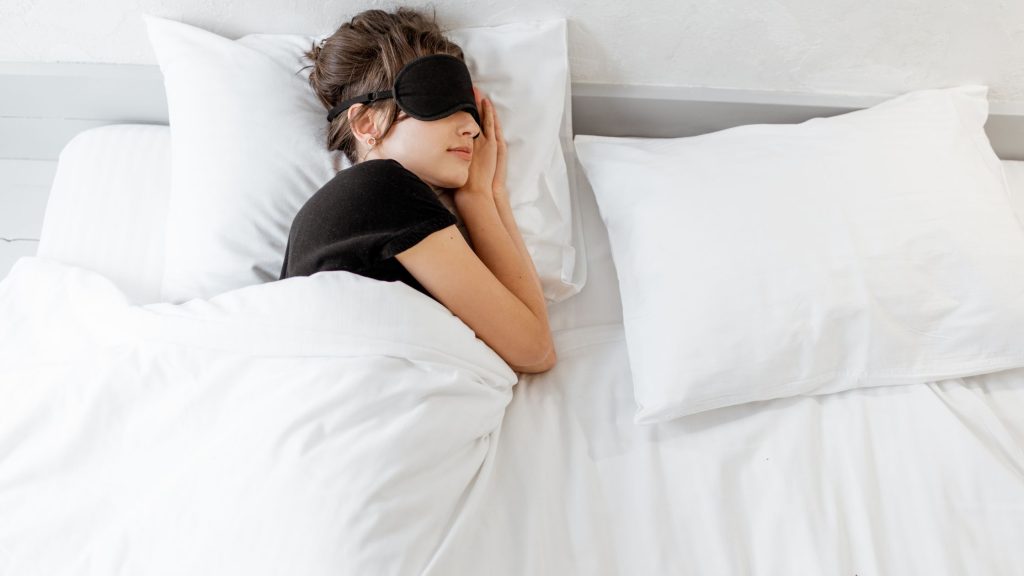Written by: Heather Aikman, Registered Clinical Counsellor
Does sleep feel elusive at times? Do you remember the last time you woke up feeling refreshed and ready to start your day?
There is a sleep deprivation epidemic happening in our society. Research indicates that two thirds of adults in developing countries do not get the recommended 8 hours of sleep per night (National Sleep Foundation). Although, you may not be surprised by this statistic, you may be surprised by the consequences of your sleepless nights on your overall health.
Your body needs sleep just as it needs food and air. A solid 7 to 9 hours of sleep allows your body to move through the different stages of sleep, rapid eye movement (REM) and non-rapid eye movement (NREM) sleep.
During these sleep stages your body heals itself and restores its chemical balance. And stimulants such as caffeine aren’t enough to override your body’s need for sleep. In fact, these can make sleep deprivation worse by making it harder to fall asleep at night.
A good night’s sleep plays a significant role in maintaining your mental and physical health. Let’s take a closer look at how.
1.SLEEP HELPS TO BOOST YOUR MENTAL HEALTH
You likely have experienced a poor night’s sleep and how that plays havoc with your emotions. You even recognize it in others.
While most of us understand subjectively that a lack of sleep leads to irritability, anger, and an inability to cope with stress, science is starting to help us understand that it’s more significant than that. Studies are showing the bidirectional influence of the lack of sleep on mental health. As sleep specialist, Dr. Matthew Walker states:
“It has been commonly thought that psychiatric conditions cause poor sleep, but science is showing us that otherwise healthy people can experience a neurological pattern of brain activity similar to that observed in many of the psychiatric conditions simply by having their sleep disrupted or blocked. In fact, many of the brain regions commonly impacted by psychiatric mood disorders are the same regions that are involved in sleep regulation and impacted by sleep loss.”
What this suggests is that sleep disruption is a contributing factor to the instigation and/or maintenance of numerous psychiatric illnesses. Researchers have proven that improving quantity, quality, and regularity of sleep can significantly improve mental health issues.
2.SLEEP HELPS US WITH MEMORY AND LEARNING
We all know that not getting enough sleep makes concentrating and remembering information more difficult. This is because during sleep, your experiences and the information you learned during the day are consolidated and turned into long-term memories.
During deep sleep, the size of the synapses in your brain decreases (synapses are how information gets passed between brain cells) and this reduction in the size of synapses helps to strengthen important connections while making space for new memories and information. It is the brain’s way of trimming away unimportant connections so new information is easier to recall.
3.SLEEP HELPS TO REMOVE TOXINS FROM YOUR BRAIN
The body’s glymphatic system is very important to your brain health. This system delivers nutrients to your brain and uses cerebral spinal fluid to remove brain waste. It is important to note, the glymphatic system is at its peak performance during slow wave deep sleep (NREM).
So, if you’re not getting the recommended hours of sleep which allow your body to move into the deep sleep stage, your brain will not be able to rid this waste, which can lead to a buildup of these toxins.
Researchers are starting to link this buildup of toxins in the brain with Alzheimer’s Disease. Insufficient sleep is only one of several risk factors associated with Alzheimer’s disease.
“Sleep alone will not be the magic bullet that eradicates dementia. Nevertheless, prioritizing sleep across the life span is clearly becoming a significant factor for lowering Alzheimer’s Disease risk” (Matthew Walker, PhD).
4.SLEEP HELPS TO RESTORE YOUR IMMUNE SYSTEM
While you sleep, your immune system produces protective infection fighting substances like antibodies and cytokines. These antibodies fight bacteria and viruses. Due to poor sleep your body may not be able to effectively fight off infections and it may take you longer to recover from illness.
5.LACK OF SLEEP CAN LEAD TO WEIGHT GAIN
Poor sleep can be a factor in issues with weight. Sleep affects the levels of two hormones, leptin and ghrelin, which control feelings of hunger and fullness. Leptin tells your brain that you’ve had enough to eat. Without enough sleep your brain reduces leptin and raises ghrelin, which is an appetite stimulant. This can lead to an increase in eating or snacking.
Further, a lack sleep can lead to lethargy, where you feel less inclined to exercise or be involved in physical activity and thus, can contribute to weight gain.
6.SLEEP AFFECTS YOUR CARDIOVASCULAR SYSTEM
Sleep affects processes that keep your heart and blood vessels healthy including those that keep your blood sugar, blood pressure, and inflammation levels stable. It also plays a vital role in your body’s ability to heal and repair itself. People who don’t get enough sleep are more likely to get cardiovascular disease (National Sleep Foundation).
SOLUTION TO BETTER SLEEP…MAKE IMMEDIATE CHANGES TODAY
Why then, given the overwhelming evidence to support the importance of sleep do we not make it a priority?
If you were to change one thing to improve your overall health, SLEEP is probably the simplest, most natural change you could make.
Here are 10 tips to immediately get better sleep:
- Stick to a sleep schedule. Got to bed and wake up at the same time each day. You have an alarm to wake you up each morning. Use this same alarm to ensure you go to bed at the same time each night. Sleeping in on weekends won’t make up for the lack of sleep through the week.
- Exercise is great, but not too late in the day. Exercise 30 minutes per day. Because exercising before bed can be stimulating and lead to trouble falling asleep, try to keep your exercise before dinner.
- Do your best to avoid caffeine or nicotine. Coffee, colas, certain teas, and chocolate contain caffeine. Caffeine can take as long as 8 hours to wear off. Therefore, a cup coffee late in the day can make it difficult to fall asleep at night. Nicotine is also a stimulant and often causes smokers to sleep lightly and sometimes wake up early due to nicotine withdrawal.
- Avoid alcoholic drinks before bed. Having a drink or night cap before bed may help you relax but robs you of REM sleep and keeps your brain in the lighter stages of sleep. You also may wake up in the middle of the night when the alcohol wears off.
- Don’t take naps after 3 pm. Naps can help make up for lost sleep, but late afternoon naps can make it harder to fall asleep at night.
- Avoid heavy meals within a few hours before bedtime. Heavy meals can cause discomfort, thus, preventing you from falling and/or staying asleep.
- Take a hot bath before bed. The drop in temperature when you get out of the bath may make you feel sleepy. Plus, the bath helps you to relax and slow down so you are ready to sleep.
- Keep your bedroom dark, cool, and gadget free. Get rid of anything in your bedroom that may distract you from sleep. You sleep better if the temperature in the room is on the cooler side. A television, a cell phone, or a computer can distract you and deprive you of needed sleep. They also emit blue light that stimulates the brain, rather than relax it.
- Have the right sunlight exposure. Daylight is key to regulating your circadian rhythm and thus, your daily sleep patterns. Try to get outside in natural sunlight for at least 30 minutes per day. Researchers recommend you should get an hour of morning sunlight and turn down the lights before bedtime (National Sleep Foundation).
- Don’t lie in bed awake. If you find yourself still awake after 30 minutes or if you are feeling anxious, get up and do a relaxing activity until you are calm and ready for sleep. Avoid phones or laptops that interfere with sleep. Instead, try listening to a podcast or a meditation app, doing some stretches, or reading a book.
If you’d like more support with your sleep, we are here to help you. Contact us at Brentwood Counselling Centre today to start sleeping better today!







